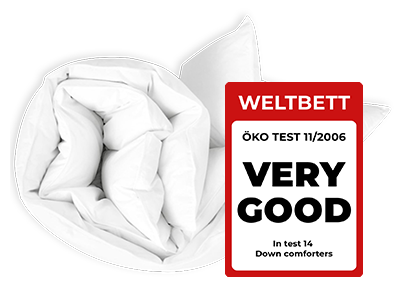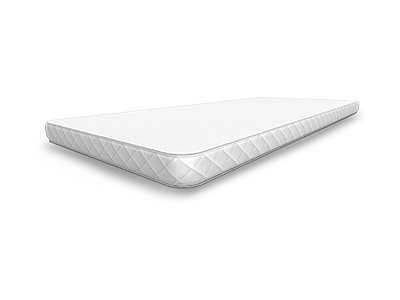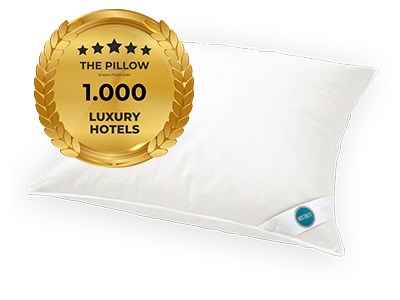Policy
Animal Welfare
Animal Welfare Policy
1. Introduction
In order to assume responsibility towards our customers and the environment, as set out in our Corporate Governance Principles, we insist on the compliance and monitoring of ethical animal husbandry and animal welfare standards with regard to the production of poultry and other animal-based non-food products. Our Animal Welfare Policy serves as a guide for both our business partners and us to implement sustainable practices in the procurement of animal products and raw materials.
2. Application range
The Animal Welfare Directive applies to all by-products of poultry and textiles derived from animal raw materials.
3. Animal welfare obligation
For all relevant private label products, Weltbett GmbH (WELTBETT) demands compliance with all legal regulations in the area of animal welfare. In the manufacture of products containing animal raw materials, the "five basic freedoms of animal welfare" must be taken into account:
.- Freedom from hunger and thirst (access to fresh water and healthy food)
- Freedom from discomfort (adequate environment including accommodation and a comfortable rest area)
- freedom from pain, injury and disease (prevention or rapid treatment)
- Freedom to express normal behaviour (sufficient space, adequate facilities and company of the animal species)
- Freedom from fear and distress (conditions and treatment that avoid suffering)
We are committed to ethical husbandry and the prevention of unnecessary suffering of animals at all stages of the supply chain.
WELTBETT Pursues the goal of actively expanding its range of animal products from production sites where animal welfare standards demonstrably exceed legal requirements. In addition, our suppliers are obliged to comply with minimum social standards at all stages of the production chain, i.e. from the fattening farm to the processor to the store (see Corporate Governance Principles / BSCI Code of Conduct).
4. Requirements and implementation
We are actively committed to the observance of animal welfare standards and have already taken concrete measures in the following areas, among others:
Customers Animal welfare oriented product standards
Our customers are among the strongest drivers and champions of the industrial convergence of our industry towards animal welfare-oriented product standards. We work with our customers to help them formulate their standards and objectives and monitor progress towards achieving them. We follow our highest customer standards.
Requirements for goose and duck products
WELTBETT Procures goose and duck products exclusively from producers who are included in the positive list of the Four Paws animal welfare association or are certified accordingly. This allows us to avoid the use of practices such as live plucking or force-feeding to produce stuffed liver. Textile-related animal welfare issues Below: no live plucking and force feeding We reject both live plucking of ducks and geese and force feeding of these animals. Our feather and down suppliers are contractually obliged to exclude live plucking.
- All feathers used are duck down or duck feathers from China. According to animal welfare organizations, live plucking is not normally used to obtain down or feathers from ducks. In addition, China does not force animals to enlarge their livers.
- WELTBETT Rejects any producer included in the negative list of the Four Paws.
- To ensure compliance with these requirements, we ask our suppliers of all down products to return their entire supply chain to the duck farms.
Vegan
We are committed to helping those customers who want to pursue a vegan lifestyle by selecting products that meet their needs and therefore we label all relevant vegan products accordingly. To this end we label products and explicitly designate products as "vegan" that do not contain any animal ingredients.
Third party audits
- WELTBETT Uses the following audited third-party standards to monitor compliance with these guidelines:
- Is RDS responsible for Down Standard Scope certified
- WELTBETT Issues specific RDS certificates per order on request of the customer
- WELTBETT Is Downpass 2017 certified ID 17-240662
- WELTBETT Is IDS International Down Standard certified ID 22-392598
Animal tests
WELTBETT Is against animal testing and has never carried out or commissioned animal testing. All products from WELTBETT have not been tested on animals.
Cleaning and cleaning agents
In the development of detergents, the detergent industry is subject to the legal provisions of the Chemicals Act. For example, the law prohibits the testing of purer ingredients on animals as long as there are scientifically satisfactory and practical alternatives to the relevant tests. In addition, all WELTBETT are vegan and biodegradable, which means that no animal ingredients are used in their production and they leave no sustainable footprint on the environment.
No products with exotic or endangered species
We also reject products that contain endangered species. This includes all species classified as endangered, vulnerable or threatened with extinction on the IUCN Red List or all species listed in CITES (Convention on International Trade in Endangered Species of Wild Fauna and Flora).
5. Active implementation
At WELTBETT we implement our sustainability requirements in close cooperation with our suppliers. The implementation of our internal requirements is carried out by the purchasing departments with the support of the responsible corporate governance drivers. Specific requirements, goals and measures are also implemented in close cooperation. We monitor the implementation at our suppliers and carry out risk-oriented assessments. If necessary, we reserve the right to have the requirements of our animal welfare policy checked by internal and/or external audits. In addition, we expect our suppliers to ensure that all employees responsible for handling live animals are effectively trained to carry out routine animal husbandry practices in such a way that pain and stress are minimised and, where necessary, qualified animal welfare standards are introduced in their areas of responsibility. This Animal Welfare Policy is part of our Terms and Conditions. In cases where non-compliance with our guidelines is identified, suppliers must submit corrective action plans clearly stating how relevant non-compliances can be remedied within a specified timeframe. The managing directors are regularly informed about the status of implementation.
We strive to continuously improve products in our range to make them more animal-friendly. In this context we always take into account the wishes of our customers and the market environment. The transition to more animal-friendly alternatives includes:
- expands the range of certified organic products
- expand the range of vegan products
- extends the product range with Downpass 2017 and / or RDS certification
- carry out pilot projects to promote high animal welfare standards
- Improvement of housing conditions for conventional products in cooperation with our suppliers.
As we want to offer more sustainable products, an exchange with external partners is essential. We are therefore in close contact with NGOs, representatives of science and stakeholders.
Product traceability
We require our suppliers to be able to provide traceability of all by-products (fresh meat production) that are sent to WELTBETT On request, the supplier must be able to provide information on the entire value chain through product identification (batch or lot number in conjunction with the respective production date).
WELTBETT Has introduced a monitoring system for by-products of meat production to ensure full traceability for all its products. To this end, we regularly carry out comprehensive supplier audits with the support of independent third parties. As part of these audits, the supplier is obliged to ensure full traceability of our products throughout the supply chain.
For all products made from animal raw materials, we also demand traceability of the raw materials back to their origin. We use certificates or other relevant documents to monitor compliance with this requirement. Wherever traceability is limited due to the structural characteristics of the industry at national or international level, we promote efforts to improve traceability through our work in trade associations such as VDFI (Germany), EDFA (Europe) and IDFL (International).
Regular evaluations
Every year the current animal welfare policy is evaluated and, if necessary, adapted. In the long term, this is the only way to ensure sustainable and responsible procurement of our animal products. In addition, we formulate goals and evaluate the extent to which these goals have been achieved on an annual basis.
 en
en 
 The Duvet
The Duvet
 The Topper
The Topper
 The Pillow
The Pillow
 The Footer
The Footer